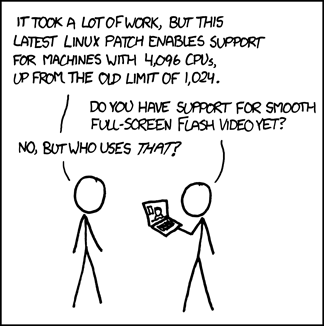Phoronix: Linux 3.11: Bay Trail Audio, 32+ Sound Cards
The sound/audio kernel driver pull request has been submitted for the Linux 3.11 merge window. The changes this time around aren't too exciting, but there's the continued bettering of the Linux audio stack...
The sound/audio kernel driver pull request has been submitted for the Linux 3.11 merge window. The changes this time around aren't too exciting, but there's the continued bettering of the Linux audio stack...



Comment